The Power of the Written Word: Introduction to the Journey
History has repeatedly proven the power of the written word over the great span of time, don’t ya think? From the Bible, to the Constitution, to the Charter of Rights, to all those life event certificates – birth, wedding, divorce, death – to the beloved ‘Twas the Night Before Christmas children’s book. If it’s deemed impressive in any way, it gets passed down from generation to generation. It is coveted in a safe deposit box. It is encased in glass covered shelving. In some cases of written literature, the human race has chosen to apply its core belief, ‘if it looks authentic on paper, it must be true’.
Over my lifetime, as I look back, I can see where there have been indicators, or signs, that at some point I became aware that the act of writing is powerful and is meant to be a significant part of my path. As a young child, sitting alone and still in my room, I vividly remember how I felt when I read; how I felt when I wrote a short story, spontaneously. Pure contentment.
As an 8-year-old girl living in the country in the ‘70’s, it felt like a treasure was being handed to me as my grandmother told me I could have my dad’s old school notebooks, the ones that had very little written in them with the rest of the pages blank, lined paper.
My first of many journals.
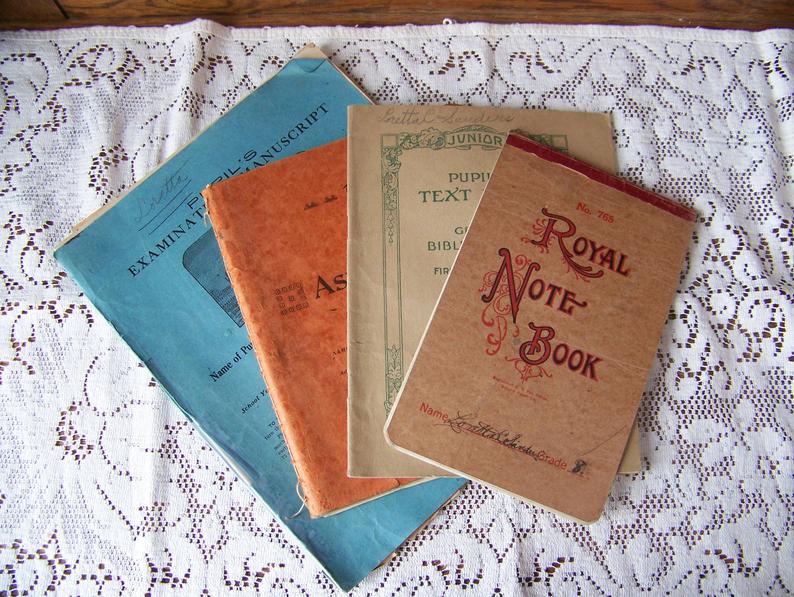
At Christmas time when I was 10, I got a diary “from Santa”; you know, one of the ones that are pretty and small with an even smaller key to lock it up from, say, younger brothers. I loved the locked privacy concept but those little pages left me having to write really tiny and what was exciting or devastating to unload into these pages had to be summarized. Not the easiest thing for me to do. I like to vent on paper. Sarcastically rant. Feel sorry for myself in ink. This comes from growing up in a family with one parent who is abundantly creative and another who emotionally punishes healthy communication.
We do what we have to, don’t why?
When my kids were little and I had an in-home daycare doing, I spent three years doing some freelance writing for literary mags across Canada and enjoying incredible gigs like writing theatre performance reviews for a local newspaper. Recently, I found an old literary magazine I was interviewed in from back then. And I quote, “She feels frustrated if she’s not writing. ‘I think that I have to do it all the time now, because it’s like an addiction.’” Hmm. Well, apparently, I detoxed got over that addiction when I went to college for Social Services shortly afterwards and, due to the requirement of learning on a full time basis, my left brain took over and I stopped writing. Counselling, group facilitation, and program coordination, translated to casenotes, reports, handouts and stats were my written word outlet.
And then it happened. The power swung back around to me.
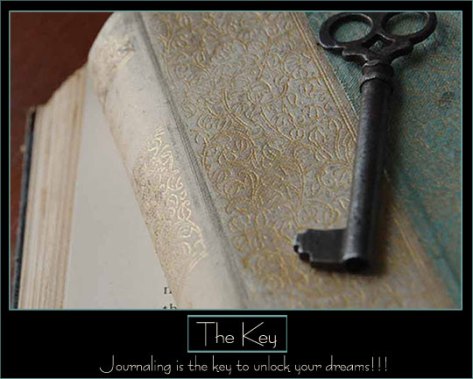
I spent many years working the crisis line for the Niagara Region Sexual Assault Centre in my late ‘20’s to mid-‘30’s. During this time, I learned to teach people how to take their screaming and scrambled thoughts and feelings inside them and write them down, “isolating them all on paper”, as Cheri, my supervisor would say. The purpose was to release the emotional pressure from the body allowing for easier processing or for buried thoughts / memories to surface. The results were proving to be remarkable.
And then I remembered how it felt, way back when, to write.
And I vowed to myself that someday I would return to the world of the written word.
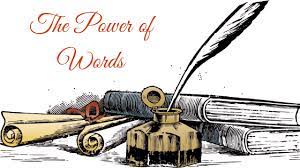
Again years later, when working with cancer patients at Wellspring Niagara, facilitating journaling classes, the feedback the participants gave me on the effectiveness of journaling in their fight to recover was absolutely amazing. I had heard more positive stories than sad ones. Family members were included in the classes. I heard how helpful specific techniques had become in keeping themselves stabilized so that they could continue to help their struggling loved ones.
While developing my classes for Wellspring, I did my research. Through the research, I discovered the wide and various range of benefits attached to journaling. I began to discover just how magical personal writing had the potential to be
Putting thoughts and feelings into words
I found, over the years, that the catchiest, simplest definition for journaling is, “Organizing and clarifying thoughts and feelings (managing); expressing and releasing thoughts and feelings (de-stressing).
When looking at journaling in such a way, we can include all forms of the written word as a manner of journaling:
- Dear Diary
- To do lists
- Day planner / organizer
- Dream journal
- Emails
- Texts
- Memos
- Travel journal
- Recording an experience
- Guided journaling
- Notes
- Letter-writing
- Poetry-writing
- Scrapbooking (illustrated journaling)
- Social media
Then I began studying the law of attraction and facilitated many vision board workshops. The law of attraction simply is the belief that what we think about, we bring about. We create our own reality, they say, by thinking what we think and feeling what we feel. And there are techniques we can use to strengthen and focus this powerful means of achieving. One way is by writing down our thoughts and feelings in a positive and inspirational way, allowing ourselves the focus on what is really going on inside of us and what we really want. We can manifest so much just by purposefully writing down our needs and desires, believing we deserve to have them and imagining how it would feel to have them. It’s a wonderful thing! Writing out what we want is like putting in a request, an order, in to the universe. But I warn through experience, be careful what you wish for, for you have no control on how the order is filled.
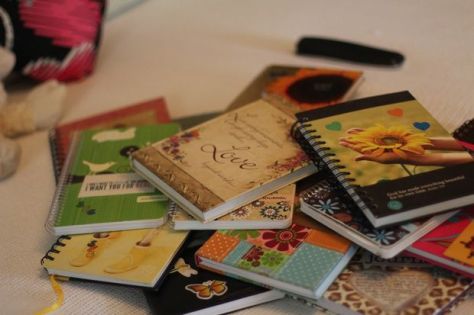
It is not simply putting pen to paper, oh by far! But, it is not a matter of needing to be a great writer either. Nope, not at all. You can be the worst writer ever and this will still be powerful for you. Like our recent abandonment of grammatical rules applied in texting, emailing and Facebook messaging, periods, capitals, commas, and spelling rarely matters in journaling. We will be asking the left brain to all but take a hike. No rules. Rules hinder the process, as in many creative areas and adventures in life.
Also by Christine Whelan:
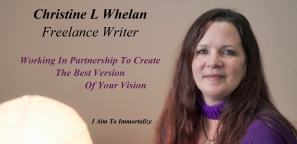
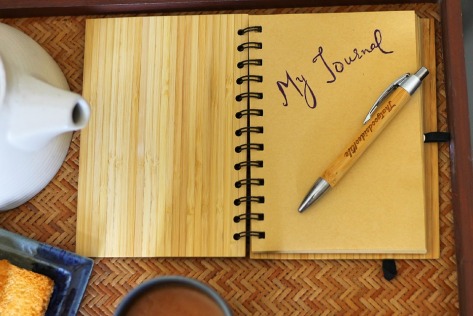
3 thoughts on “What is journaling? How can it help me?”